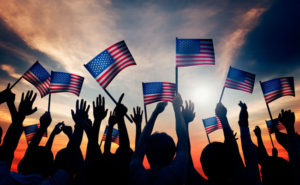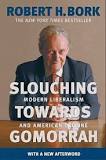Trickle Down Freedom
 As a young boy, my concept of freedom was when the school bell rang, and classes were dismissed. We were free to play ball and visit our friends. The greatest threat to our freedom was the idea that parents and school officials could set rules and laws requiring us to be in school. At the ripe old age of twelve, we knew what real freedom was, and it became apparent to us that there was a massive conspiracy from authority figures to restrict our freedom. The paradox of such a perspective is this: The very thing that we thought was captivity was, in reality, our ticket to freedom.
As a young boy, my concept of freedom was when the school bell rang, and classes were dismissed. We were free to play ball and visit our friends. The greatest threat to our freedom was the idea that parents and school officials could set rules and laws requiring us to be in school. At the ripe old age of twelve, we knew what real freedom was, and it became apparent to us that there was a massive conspiracy from authority figures to restrict our freedom. The paradox of such a perspective is this: The very thing that we thought was captivity was, in reality, our ticket to freedom.
In my first year of law school, our criminal procedure professor told us American law is based on the underlying principle that, “It is better for a hundred guilty men to go free than one innocent man to go to prison.” This approach would ensure us of the freedom intended by the signers of the Declaration of Independence, the professor explained. I took issue with that interpretation. I countered that this type of thinking restricts our freedom. When people are fearful about walking down the streets of their neighborhood after dark, have we preserved freedom?
History demonstrates that as a culture continues to embrace instant gratification at the expense of future freedom, society begins to unravel morally. The fire hydrant of liberty that propelled America in its infancy was agreement that the preservation of principal comes at the expense of personal prosperity. This freedom fueled the engines of a young nation driven by dreams of democracy and steered by the determination of hard work.
When the concept of freedom becomes redefined as the pursuit of pleasure, the underlying tenet loses strength, and the fire hydrant is reduced to a trickle. “Pay now and play later,” is exchanged for “play now and pay later.”
 In his book, Slouching Towards Gomorrah, Robert Bork explains, “Real freedom is the space in between the walls. It is healthy to discuss how far apart the walls should be, but it is cultural suicide to have all space and no walls.” The walls are rules and laws that keep freedom flowing. Rules and laws do not threaten our freedom. They protect our freedom. Restricting my behavior now will ensure me of freedoms and choices for the rest of my life. A society that believes in handing the next generation more than a higher Dow Jones average will embrace the safety of personal disciplines and the consequences for the lack thereof.
In his book, Slouching Towards Gomorrah, Robert Bork explains, “Real freedom is the space in between the walls. It is healthy to discuss how far apart the walls should be, but it is cultural suicide to have all space and no walls.” The walls are rules and laws that keep freedom flowing. Rules and laws do not threaten our freedom. They protect our freedom. Restricting my behavior now will ensure me of freedoms and choices for the rest of my life. A society that believes in handing the next generation more than a higher Dow Jones average will embrace the safety of personal disciplines and the consequences for the lack thereof.
In the Bible, the Old Testament is often criticized for all of its rules and laws. Many Christians will exclaim with a sigh of relief, “We no longer live under the law!” The notion that God’s law brings freedom often produces a chuckle. Some believe that the law puts us in bondage. Nothing could be further from the truth. The law stands as a wall protecting our freedoms and protecting our choices.
The Bible tells us in Deuteronomy 6:24 why God gave us the moral law: “to fear the Lord our God, for our good always, that he might preserve us alive, as it is at this day.” The fire hydrant of freedom that flows from such a holy book is shrouded in laws and commandments. It becomes a trickle when modern day Christianity embraces Grace without the protection of the Law.
What is freedom? Is it the ability to do as we please? Is it the release of ten thousand red, white and blue balloons at a political convention? Is freedom defined as the license to pursue personal fulfillment or is it just the smell of hot dogs and the sight of fireworks on the Fourth of July?
I would suggest the opportunity of choice is a trickle of freedom; the ability to make the right choice is the definition of real freedom. More than two thousand years ago, Jesus had a choice. One option would give him immediate but limited freedom. The other option would bring ultimate freedom to many but cost him his life. The right decision at Calvary ensured that the fountain of liberty and freedom would never run dry for Christians that embrace the law.
